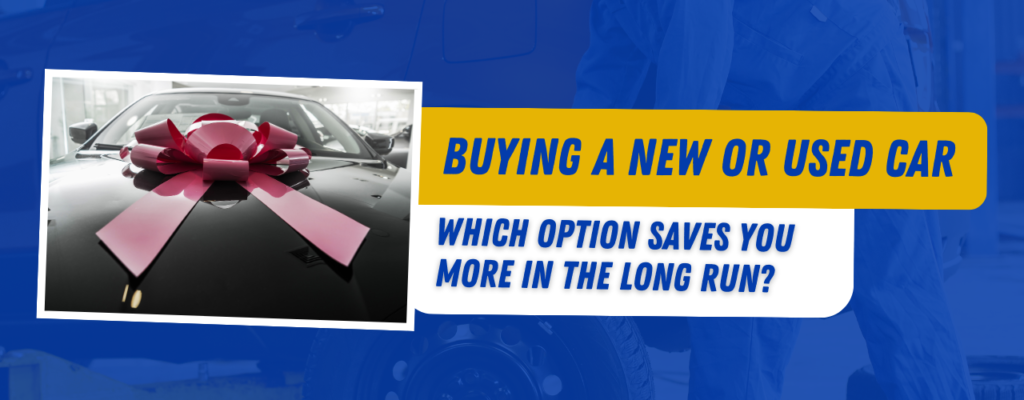Buying a New or Used Car: Which Option Saves You More in the Long Run?
Deciding between a brand-new or a second-hand car involves weighing several factors that can affect your budget, lifestyle, and overall satisfaction with the vehicle. Here’s a breakdown of key considerations to help you decide.
Pros of Buying New
- Reliability and Warranty: A new car offers the assurance of factory reliability, as it hasn’t had previous owners who might have missed maintenance. Most new cars come with a manufacturer warranty for at least three years.
- Latest Technology: New cars come equipped with the latest tech, from infotainment systems to advanced safety features. If cutting-edge tech or hybrid/electric options are important, a new car can be more appealing.
- Low Maintenance Costs: Since everything is new, initial repair costs are typically minimal, saving you on maintenance in the first few years
- Customisation: New cars allow for customisation from the get-go, letting you choose specific colours, features, and trims rather than settling for what’s available in the used market.
- Reliability and Warranty: A new car offers the assurance of factory reliability, as it hasn’t had previous owners who might have missed maintenance. Most new cars come with a manufacturer warranty for at least three years.
- Latest Technology: New cars come equipped with the latest tech, from infotainment systems to advanced safety features. If cutting-edge tech or hybrid/electric options are important, a new car can be more appealing.
- Low Maintenance Costs: Since everything is new, initial repair costs are typically minimal, saving you on maintenance in the first few years
- Customisation: New cars allow for customisation from the get-go, letting you choose specific colours, features, and trims rather than settling for what’s available in the used market.
Cons of Buying New
- Depreciation: New cars lose value quickly, with some losing up to 30% of their value in the first year alone. This can mean a substantial hit if you plan to sell within a few years..
- Higher Upfront Cost: New cars come with a high price tag, which can be a big investment compared to what you’d pay for a similar used model.
Pros of Buying Second-Hand
- Lower Price and Slower Depreciation: Used cars are often more affordable, and they depreciate at a slower rate than new ones, especially if they’re over three years old.
- Wider Range for Your Budget: For the same budget, you might be able to afford a higher-spec used car, which would be out of reach if buying new. This lets you enjoy features and comfort at a lower price.
- Lower Price and Slower Depreciation: Used cars are often more affordable, and they depreciate at a slower rate than new ones, especially if they’re over three years old.
- Wider Range for Your Budget: For the same budget, you might be able to afford a higher-spec used car, which would be out of reach if buying new. This lets you enjoy features and comfort at a lower price.
Cons of Buying Second-Hand
- Potential Hidden Issues: Used cars can sometimes come with issues, especially if past owners didn’t maintain them properly. Buying from a reputable dealer and obtaining a full vehicle history can help mitigate these risks
- .Limited Warranty: Unless you buy an extended warranty, used cars often have limited or no warranty coverage, which could lead to unexpected repair costs down the line.
- Potential Hidden Issues: Used cars can sometimes come with issues, especially if past owners didn’t maintain them properly. Buying from a reputable dealer and obtaining a full vehicle history can help mitigate these risks
- .Limited Warranty: Unless you buy an extended warranty, used cars often have limited or no warranty coverage, which could lead to unexpected repair costs down the line.
Other Considerations
- Financing: Car financing options often favour new cars with lower interest rates or incentives like deposit contributions, making monthly payments more manageable even for higher-priced vehicles
- Insurance Costs: New cars typically cost more to insure than used ones, so it’s essential to factor this into your budget.
In the end, if you prioritise reliability, technology, and customisation, a new car may be worth the investment. On the other hand, if affordability, immediate availability, and avoiding rapid depreciation are more important, a quality used car could be the better choice.

